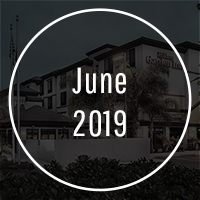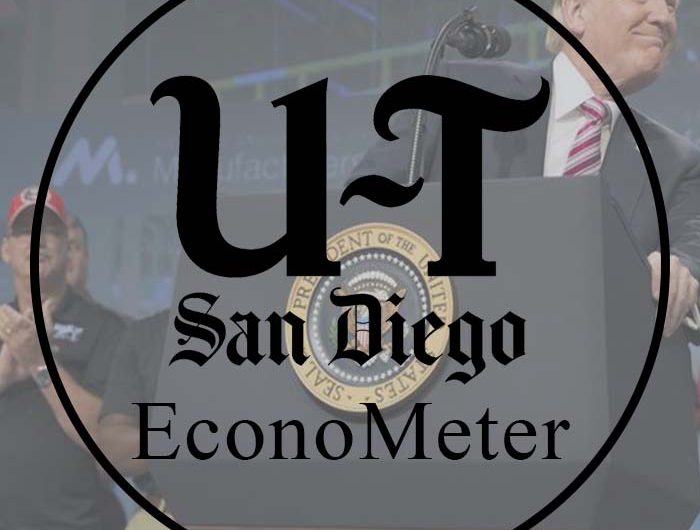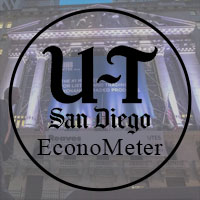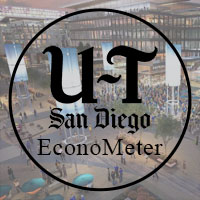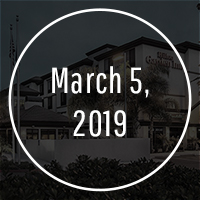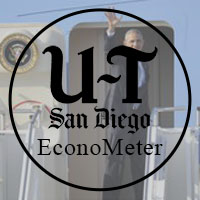20 Laws of Hotel Prospecting
This month’s blog post features a guest article written by Michael DeJesus.
Sales prospecting should not be an afterthought, rather, it is the foundation sales is built upon. If we remove prospecting from the equation, our business will be affected very quickly. With social media’s increase in popularity, prospecting has actually become easier as we can now search for business opportunities online. However, most salespeople still find excuses to not incorporate this very valuable exercise into their daily routines.
To be successful, we cannot rely solely on repeat business or business that falls into our lap. As we saw in 2009, with the economic downturn, it was evident that salespeople were not on the hunt but were simply transactional. It is important that salespeople are always continuing to look for new business, as building new relationships is a key to success. While it is evident that the industry is still transactional in many ways, salespeople do not fulfill their prospecting quotas for one of two reasons: first, they feel it is beneath them to do it, like it’s a task that either marketing or a sales coordinator should be handling for them. The second reason people are relying on others in prospecting is because they are simply afraid of rejection. Studies consistently show that the number one reason why salespeople quit the profession is their inability to generate enough leads that they can close to be deemed successful.
As a sales person, prospecting is your job! Here are 20 prospecting truths centered around today’s sales associates and what can be done to be successful:
1. Accept reality: It’s your responsibility to prospect. Do not rely on others for your leads.
2. Prospecting is not something you do when you have time or don’t have enough business. Prospecting should be a daily activity, worked into your routine so that it becomes a habit.
3. If you have an office, place a Do Not Disturb sign on your door. If you don’t, use a guest room or find a quiet place. DO NOT have your computer on and DO NOT type while speaking to a prospect. Prepare your prospecting list in advance.
4. Thinking about prospecting is not prospecting. You might be thinking of your prospects, but they are probably not thinking about you.
5. Networking is not prospecting. It is another part of the job. Both prospecting and networking serve the same purpose: building new relationships. However, the exercise of telephone prospecting not only helps generate new leads but it sharpens your sales skills over the phone versus face to face interaction. Both are equally important.
6. There is no such thing as a bad piece of business! Whatever lead you may find, if placed over the right dates, can become a great piece of business for your hotel.
7. Be thankful that sales is not easy. It’s the reason why there is so much money to be made in sales. Let’s face it, if sales was easy, it wouldn’t pay well.
8. Always know that it will probably take you at least twice as many attempts as you think to engage a prospect.
9. Don’t start what you can’t finish. Follow-up is the norm, not the exception.
10. Prospecting is not about you. Prospecting is about the prospect. Listen more than you talk. Allow the prospect to clarify his/her needs before blindly attempting to sell your product.
11. Divide your prospecting pipeline into three parts: top, middle and bottom. Place more value on the bottom than on the top. Start from the bottom with accounts that have potential, those are the accounts that actually might have business that nobody has ever asked about.
12. Establish an accountability process. Hold yourself accountable for making your prospecting calls.
13. Remember that tomorrow begins today. Never end a day without knowing exactly who you will prospect tomorrow and what your objectives are for each call.
14. Break your day into eight, 60-minute segments. Dedicate at least one segment to prospecting. Keep in mind that new salespeople will probably need to dedicate up to three of those segments to prospecting each day to get comfortable with the process and make it a habit.
15. At the start of each prospecting segment, know what your overall goal is and how you will measure it. The best person to hold you accountable for your activity is you.
16. Spend 5 minutes after each prospecting segment to congratulate yourself and evaluate your performance and remember, persistence is the key to being successful. It may take 5-10 times before a client returns your call or you receive a reply.
17. When prospecting, know what your tone will be when leaving a message. Have a compelling message and let them know that you will also follow up again with a call or email.
18. Have a script prepared to manage the basics when it comes to questions that you can use daily.
19. Prospect by an industry or segment that you enjoy working with to help build confidence.
20. Focus and discipline in executing your prospecting plan is the key to successful prospecting.
In hopes that this will be used by owners, general managers and sales executives who want accountability in sales. GOOD LUCK!
Michael DeJesus is the Corporate Director of Sales for RAR Hospitality. He has over 20 years of experience in hotel sales, training, leading and holding sales people accountable.
Econometer: Should the Federal Reserve lower interest rates?
Question:Should the Federal Reserve lower interest rates, as the president recommends?
Bob Rauch, R.A. Rauch & Associates
YES: While the current pause will give the U.S. central bank time to assess economic development, keeping a strong economy is critical. I would be opposed to future increases unless the economy truly heats up as global GDP growth is soft. I was the only one on this panel to suggest an end to rate increases when asked late last year and I might be the only one to suggest we cut rates this time.
For the full article by Contact Reporter, Phillip Molnar, click here.
Leadership and Employee Engagement from an HR Perspective
By Dari DeSousa; PHR, Corporate Director of Human Resources, RAR Hospitality
One of my main roles in the last decade was to drive Employee Engagement at hotels in the market that I supported. One annual activity was to conduct “opinion surveys” and examine the results in a YOY review to compare individual departments to their hotels’ average scores. My focus was on the departments that had low overall engagement scores, they were in the “red zone”. I’ve done this activity annually for the last decade: red zone meetings with the employees, listen to their frustrations, work with department and hotel leadership to improve things, then measure the following year to see if there is improvement, rinse, and repeat.
Having spoken to thousands of employees over the last 10 years, I can sum up almost any complaint or frustration of any RED scoring department to one of the following areas:
- Leadership being ethical
- Leadership communicating clearly and effectively
- Leadership having a genuine connection to the team
- Enough supplies, tools, product, linen, etc. to do their job effectively
- Leadership being knowledgeable and consistent
All items are leadership specific. Effective, engaged leaders will better support the team resulting in them having a better work experience. Engaged teams are more productive, less likely to take advantage of the company, and will give a far better guest experience than non-engaged teams.
Let’s explore each area.
Leadership being ethical.
Ethics isn’t a pick and choose activity. You are ethical, or you are not. You simply can’t sell, “we are ethical 90% of the time”.
When you initially ask yourself if you are ethical – the immediate answer is ‘of course’. I challenge you to step back and look at all areas of the company – is everyone doing the right thing at all times? Is there a culture of cutting corners, fluffing P&L numbers, changing employee punches by 1 minute to avoid OT or a missed meal break violation? This is very much a top down driven part of your culture.
If you are wondering if your action is ethical, ask yourself, “If there was a front-page news story about “what I’m doing”, am I proud or worried about indictment? Or ask yourself, “Would my mother/grandparent/priest/spouse/children/mentor/etc. be proud of the actions that I am taking”?
Your actions cannot contradict your words. Employees will believe what they see. If they see you ask someone to punch out, then finish a task – they will know. If they see you take home some cleaning supplies or toilet paper because you are out – they will know. If they see you delete the email of a guest that had a horrible stay in order to prevent the system from sending them a guest satisfaction survey – they will know. They will know that cheating is ok for them too and their trust of you is eroded.
Advantages to businesses that have a reputation of being an ethical company:
- Competitive Edge – people prefer to work with those they can trust.
- Credibility – people believe you.
- Efficiency – trust makes decision making faster and more economical.
- Morale – people feel better about their jobs and themselves.
- Loyalty – repeat customers.
- Personal Satisfaction – self-respect and pride
Leadership communicating clearly and effectively.
Hourly teams are frustrated when we don’t….
- Ask their opinions about process changes that affect their daily work.
- Give them individualized performance reviews and instead give them a cookie cutter version that they can see is the same as their colleague’s review – all that was changed was their name.
- Tell them throughout the year about performance adjustments they need to make and save it for their review
- Set a positive tone, if you always present “doom and gloom” then the environment will be “doomy and gloomy”.
- Give nonverbal positive communication. Be aware of your body language, tone of voice and eye contact (or lack of).
- Have a truly open door where we encourage our team to be candid. Create an atmosphere where your direct reports know you are available. Meet with them regularly and provide them updates. Offer recognition, support, feedback, praise, and encouragement.
- Ask them their side of the story about an issue that results in discipline
- Share with them positive guest comments, letters or improved GSS scores.
- Ask their opinion about something that affects them.
- Tell them in advance of major schedule changes or an unpleasant back-to-back shift
- Have a daily “game plan” or stand-up meeting at the start of the shift to get everyone ready for the day.
- Have regular department meetings
- Tell them about groups in house.
- Tell them about policy/menu/process changes.
- Tell them in advance super low occupancy times, or super high occupancy times.
- Tell them about major staffing changes, new leaders, new supervisors.
- Have a communication board posting important department and hotel information that they need to know to do their jobs.
Communication can be the easiest thing to get right and it can be the easiest thing to get wrong. If you miss on a communication you should have sent to the team or left them in the dark about an important change, then provide an apology. There is no shame in a mea culpa, in fact, your team will respect you more if you own up when you make a mistake.
On a daily, weekly basis – ask yourself, “if I were my direct report, what would be important for me to know today”? Also ask yourself, “what method of communication do I prefer”? Perhaps a communication board that posts all relevant information and is updated weekly is best. Perhaps hold a team meeting at the beginning of the shift and go over the game plan. Perhaps hold monthly or quarterly meetings. Perhaps your team is all on email, and they can read their emails while on the clock at work – then utilize email. I recommend a variety of methods, mixing it up can make it more interesting and I always recommend a daily staff briefing before the shift begins. Take 10-minutes and set everyone up for the shift, give out some recognition and kudos and take questions.
Leadership having a genuine connection to the team.
Genuine curiosity for your team is what employees want. They don’t want a stereotypical Used Car Salesperson approach – they want a real connection.
- Don’t operate at 50K feet. Get out of your office and touch tables, check a guest in, walk the floors, take a loop around the work space. Don’t wait for it to be busy, regularly do this, and ask, “do you need anything” or “how is it going today”?
- Write personal note cards to thank people for small things – boost their positive energy – recognize the behaviors you’d like to see repeated.
- Hold quarterly, informal Rap sessions that begin with you asking, “how are things in your world” or another question that gives your employees an opportunity to tell you about them.
- At Daily Stand-up, pick a different person to tell the group what they are proud of/thankful for. Let them pick the next person.
- Ask your team, “what is working” and “what is not working”, listen for the answer and react.
- Genuine recognition, thank them for a busy shift or difficult day. The more specific the recognition, the more meaningful it will be.
Enough supplies, tools, product, linen, etc. to do their job effectively.
Quite simply, get your team the tools they need to efficiently, effectively and safely do the job that we expect them to do. Order regularly, set PAR levels, have monthly inventory and have an employee reporting system for them to tell you when we are out of an item.
At the end of the day, if you take your finger off of the pulse of your team, you will drive your teams to varying degrees of frustration. Retaining quality employees can be a challenge and not having the tools they need results in higher turnover. This turnover not only affects morale, but your company’s bottom line will take a hit too. Whether higher turnover, disengagement or marching in the alley, you will have created a poor work experience for your staff and that isn’t enjoyable for anyone.
Leadership being knowledgeable and consistent.
Consistency is key to …well everything. If you have a consistent attitude/mood, if you have consistent rules/processes, if you consistently hold everyone accountable for their work product, then you will have a smoother running department or hotel. Being firm and being fair are not mutually exclusive. I find some leaders manage so that their team “likes them”. They talk to an employee multiple times for the same corrective action, they overlook frequent small attendance infraction and they often cross the boundaries of leader-direct report by going and hanging out with the employees, becoming Facebook friends and by personal conversations that reveal intimate details of their lives. Be friendly, yes. Be friends, no. It can be an even more difficult situation when an hourly employee is promoted to supervisor and they are supervising the same group they previously were pals with. Setting boundaries is important. Otherwise, the employees can take advantage of the leader’s “niceness” or others will perceive favoritism. Hold yourself accountable and hold your team accountable to the standards in which you have trained them.
Beingknowledgeableabout the work that every team member completes is important. You don’t need to have worked in that job, you can gain the knowledge by spending time with them and understanding how they are working and what the struggles of their day to day is.
- Know the rules, policies, laws
- Admit when you don’t know something, then find out the answer and follow-up with the right answer
- Ask your team questions about how they are doing a task, or why.
- Know the basics: checking-in, making a bed, using the POS system, answering the phone.
- Cross train at another location to observe best practices that you can use back at your location.
- Network with like positions outside of your own company.
- Share your knowledge with your team.
- Strengthen your bench by training those interested and those that are high potential for the next group of Leads, Supervisors and entry-level managers.
- Utilize those interested in project work, tasks, fun work to engage them and maximize your time. If the team is creating a Communication Board, then you can work on meaningful performance reviews.
- Find a mentor or a coach.
- Interview those in the next job you would like to see their career progression and evaluate what you need to learn to get there.
- Then, create a personal development plan with actionable steps based on what you find.
Closing thoughts
Leaders should focus on departments with challenges, but it is arguably just as important to learn from those doing it well and have them share what makes them successful. Being 100% or in the “green zone” on an Employee Engagement opinion survey does not mean there are no issues. In fact, I have found that the issues raised by these highly engaged teams are genuinely big issues and produce some rich problem-solving dialog. Highly engaged employees are looking to learn new skills, sharpen existing ones and learn from their mistakes. This mindset enables them to find innovative solutions to the most challenging problems. When these employees are heard, we can leverage their highly flexible, adaptive mindset to implement improvements in an entire organization.
Let the successful leaders model the behavior that you would like to see in all of your leaders.
Econometer: Is Stephen Moore a good pick for the Federal Reserve?
Question: Is Stephen Moore a good pick to serve on the Federal Reserve Board?
Bob Rauch, R.A. Rauch & Associates
YES: There is strong pushback because Moore has a master’s degree in economics, not a Ph. D. and that he is a partisan economist. Others who made it to the Fed include Alice Rivlin, from Clinton’s Office of Management and Budget; Ben Bernanke, Bush White House Council of Economic Advisers ;and current Fed Governor Lael Brainard ,who donated to both the Obama and Clinton election campaigns. Moore is bright, articulate and wants a strong economy.
For the full article by Contact Reporter, Phillip Molnar, click here.
What the Hotel World Looks Like in 2020
By Bob Rauch and Sarah Andersen
OTA War on the Horizon
Hotel Distribution is arguably the big topic of the near term. Expedia Group and Booking Holdings (previously Priceline) are the two big online travel agencies (OTAs), dominating well over 70% of OTA market share. Now this duopoly faces major disruption by Airbnb, Facebook, and Google. Airbnb just bought HotelTonight, an app-based company that sells last-minute, unused boutique and independent hotel inventory. Meanwhile, SiteMinder’s “BookingButton” already integrate into Facebook business pages as a widget, eliminating the need to click away from the site to make a booking. Add in the possibility that Google might be more proactive in playing in the travel space and an OTA war is in the making. What does this mean for the hotel industry? It’s great news. The average commissions for Expedia and Booking Holdings are 15% or more. Airbnb has traditionally worked on a model of 3%. Many other peer-to-peer vacation or short-term rental companies are also out there booking non-branded hotel rooms. As OTAs consolidate and compete, we believe the commissions will come down.
OTAs have always promoted the “billboard effect,” espousing that they are promoting hotels with hundreds of millions of dollars and that spending benefits the industry as a whole. That theory has largely been debunked by Kalibri Labs in a study funded by the American Hotel & Lodging Association (AH&LA). Recently, direct booking channels, promoted aggressively by the brands, have changed the landscape with direct outperforming OTA bookings over the past year. Moreover, there are other entities that could enter the fray such as Amazon, Apple and as mentioned above, Google and Airbnb.
Artificial Intelligence
Robotics is making great strides in hospitality. Service robots will soon be mass produced and can vacuum floors, deliver items to guests and answer questions like a concierge. Machine-learning combined with message apps are bringing a new model of engagement to the mobile screenand chatbots can enhance the conversation with customers, enabling better experiences. They are able to answer questions, enable a purchase or report weather just like Amazon’s Alexa can in your home.
The “Internet of Things” will bring big data to the forefront of consumer decision-making via wi-fi and new 5G standards. According to a MarketsandMarkets report, the global WiFi market will be worth 33.6 billion by 2020. In this mobile-connectivity revolution, hotel agents will become computer-aided and support cognitive networksand consumer’s semantic search will be based on their interests and priorities. Choosing a destination and creating the perfect experience will become much simpler. Further, platforms like property management systems (PMS), central reservation systems (CRS) and revenue management systems (RMS) will make the merchandising and conversion process more automated while pricing becomes more dynamic and predictable.
Personalization
User-generated content combined with personalized itineraries will continue to enable tech-savvy and sophisticated travelers to increase their travel expectations. Taking a page out of Airbnb’s book, hotels willdeliver experiences in a highly personalized and flexible manner. This is done by continuing to improve the percentage of business from direct bookings. The big hotel companies own the customer and while the costs are high for independent hotels to obtain direct bookings, Hilton, Marriott and IHG already have tens of millions of loyal travelers.
Kalibri Labs
Smith Travel Research (now STR) started the shift from hotelier to educated hotelier 30 years ago. The next generation competitive set is now determined by each segment (match by geography, rate, day of week, lead time; overall “demand curve”) comes from Kalibri Labs (KL). Cindy Estis-Green and Mark Lomanno (former STR President) have created an outstanding platform for channel analysis, acquisition costs review, loyalty contribution and more. They have standardized mapping and cost factors by channel, market segment, rate category, channel costs, transaction fees, loyalty costs, retail commissions, wholesale commissions, and sales and marketing costs. According to KL, customer acquisition costs are 15-25% of guest-paid revenue (transaction-specific costs and cross-channel costs). Information on this is available from KL.
Final Thoughts
Change has never been easy for some, but we have reached the tipping point in hospitality where the old school methods (hard work, talking to customers, caring about each employee) are not enough. They are critical, because without the “hands on” touches, we do not have hospitality. However, without deep knowledge of technology and industry trends, we become dinosaurs, especially if English is our only language. The next generation traveler wants to hang-out together in the lobby as a party of one, wants and expects technology and is more frequently an international traveler with an occasional need for additional languages. Those who are not up-to-speed will increasingly feel the heat—those who are up-to-speed will enjoy the rapid changes coming our way. To a great remainder of 2019!
What are the ethics of U.S. businesses who sell to China?
Question: Should U.S. businesses, like Thermo Fisher and Illumina, be held responsible for how their products are used?
Bob Rauch, R.A. Rauch & Associates
YES: There should be export control regulations consistent with the rapid evolution of technology. If software or technology is being used for the purpose of domestic repression by China, there should be restrictions on that technology that do not permit the Chinese government’s repression or the detention of families of U.S. government employees. The genetic sequencing that China is using to target a population, coupled with surveillance, detection and censorship should be reviewed by U.S. officials.
For the full article by Contact Reporter, Phillip Molnar, click here.
Flexing Hotel Labor Today
Written by Bob Rauch and Sarah Andersen
It’s easy to say, “flex down your labor costs” when revenues drop, but is it easy to do?
In a market of uncertainty and seasonal fluctuations, managing hotel property expenses is a challenging job that remains on the forefront of the minds of strategic operators. Hotels that implement a staffing strategy that adapts to these changes will keep operations running smoothly throughout the year and even throughout an economic slowdown. This can be a remarkable way to improve profits when revenues are flat or even down. With a focused attention on payroll, creative training programs, automation, and F&B streamlining, hotel operators can reduce turnover and ultimately cut property costs.
According to both Marcus & Millichap’s national economic outlook and CBRE’s report on hotel profitability, wage growth slowly increased, especially in the hospitality sector. In 2019 an average 3% pay increase is predicted, which is the same as 2018 and 2017 in the U.S. Additionally, the real wage increase is forecast to be 0.6%, down from 1% last year. This takes into account an expected 2.4% inflation rate in 2019. This year minimum wage has also increased in 19 states and 24 cities. This wage growth across the country lends little opportunity to achieve cost savings when average rates remain flat.
To combat this, operators need to find creative ways to retain employees with something other than higher pay. Training is an investment directly linked to employee retention and not only improves output, but will also lead to higher job satisfaction. In times of economic stress, one of the biggest mistakes operators often make to try to manage expenses is cutting training. With maintained training programs, turnover is expected to decrease, productivity will increase, and the cost of finding, hiring and training new employees will shrink as well. This has been proven by almost all major hotel companies over the past 30 years.
With a highly seasonal industry, operators need to ensure their year-round employees have meaningful work during slower times. One successful technique to ensure consistent productivity is cross-training employees for different disciplines within the hotel. This will foster increased work efficiency and will allow employees to take ownership over what happens on property. Employees stronger sense of responsibility will make the most of their talents and skills, ensuring labor cost optimization. For example, in a hotel’s rooms division, Front Desk Supervisors should execute desk responsibilities and whenever applicable, cover all or part of a shift thus reducing agent hours. The Assistant General Manager can also work partial desk shifts in an effort to reduce desk agent hours either on schedule or when agents are sent home early due to limited activity.
Unique Ways Toward Productivity
As an operator, it is critical to decide which positions are mandatory to run an efficient operation. Automation is something that scares many operators but the truth is, automation can improve productivity and virtually never causes a reduction of jobs. As an example, we utilize a service robot from Savioke that delivers sundries, housekeeping supplies and food and beverage items to guests without having to page an employee and pull them off their primary job. Guests love technology so there is no disappointment when our robot arrives and calls the room.
Today’s workmen’s compensation claims have risen sharply in the area of housekeeping employees injured while vacuuming. The answer? A robot from Maidbots. This robot vacuums rooms while housekeepers tend to cleaning the bathroom. While it takes longer to vacuum a room robotically, the productivity increase is significant.
Enrolling in sustainability programs not only lowers energy costs, but can also result in significant labor cost savings. In fact, the Thayer School of Engineering at Dartmouth found that 92 percent of a building’s design, construction, operations, and maintenance costs come from labor and labor-related costs. An example of this realized savings from sustainability efforts can be seen at one of our hotels in San Diego. RAR Hospitality’s management team has implemented the Green Clean program, which offers guests a $5 credit should they opt out of full clean service each day and many hotel companies are implementing a similar program.
In food and beverage, it is time we made it easy for today’s guests to have a choice of self-service with an iPad or assistance from a manager when ordering in a fast casual or casual restaurant. Servers will be able to handle significantly more customers this way. Does it replace servers? Possibly, but it will increase the number of jobs in software development and many servers are educated enough to fill those spots.
The bottom line is, we need to be prepared for a change in economic conditions. With labor being a hotel’s largest expense generator, the benefits of these seemingly minor changes will accrue in increased productivity and reduced overhead. Start now and watch profits rise for another two years. To a strong finish and another profitable year in our industry!
Is working for the federal government a good job?
Question: Is working for the federal government a good job?
Bob Rauch, R.A. Rauch & Associates
YES: Just after the reopening of government, employees were back at work and getting paid at jobs that have competitive benefits and job security. The lesson to be learned is that even government employees need to save for a rainy day. No prudent person should be in financial distress from two missed paychecks. This is a problem that can be solved by better education and training early on.
For the full article by Contact Reporter, Phillip Molnar, click here.
A Primer on 2019 in the Lodging Industry: Economy, Loyalty, and Specific Markets
When forecasting what will occur in a given year, I often quote lots of others, which reduces the risk I am taking as a sole prognosticator. Yet having now been around the industry exactly 45 years, I am going to create some predictions of my own.
2019 is the year where supply and demand come in balance, with about two percent growth for each. That means occupancy levels will be flat in the U.S. – though certain markets have some supply growth well beyond that and might see occupancy reductions. Let’s begin with the economy, and then move into lodging industry projections.
U.S. Economy
Stock market volatility won’t go away with too much political divisiveness and trade war rumors going around. Interest rates will likely stay where they are in an attempt to avoid or stave off a recession. China’s economy is suspect and the international wind is certainly not at our back anymore. But there is no current indication, in my opinion, that we will have a recession this year. Fundamentals are at historic highs and default rates are at historic lows.
Consumer confidence remains strong, purchasing managers are showing continued growth, jobs and wages are growing and there is no “bubble” in the market that is hanging over us. Yes, there are pundits that predict recession. But we are far more likely to experience a recession caused by external factors such as war, terrorism or an “event” than a deterioration of fundamentals.
Supply growth is not a problem as lenders and construction costs are keeping that in check. Most indicators suggest the current expansion cycle still has some legs. Stay tuned for changes to the macroeconomic environment but gross domestic product growth will likely be above two percent.
U.S. Lodging
As occupancy remains flat, average rates should continue to grow albeit slowly. This is not a result of weak occupancies, rather, it is a combination of rate transparency, competition from alternative accommodations such as vacation rentals, Airbnb and others and hesitancy on the part of revenue managers. When revenues rise only two percent, my estimate of rate growth this year, trouble is ahead on profit margins. A tight labor market, minimum wage increases and other cost increases will put real pressure on profits.
Based on some recession risk and clear profit pressures, owners will benefit from early planning in the event of softening demand. Revenue managers must maintain rates as pricing power shifts to the consumer. Opaque distribution channels can be leveraged here and bundling of air, car and hotel room can mask rate cuts. The power of large brands today has put online travel agencies on notice that they do not own the market. However, there has been a significant addition of alternative accommodations and this could lead to greater use of those channels—both due to more “hosts” needing to supplement income and hence more supply of less expensive product.
How we as operators react to any downturn will determine how we do. Perceived value will become even more critical for guests and loyalty strategies will possibly create more Loyalty Managers as a job title. It has become paramount to a hotel’s success to have attributes that today’s guests desire. Amenities, service quality and a sincere desire to please guests will not go unnoticed. The wellness market is growing and the new brands entering the market are not your father’s Hilton, Marriott or IHG product, so to speak.
Loyalty
Kalibri Labs (KL) has studied the loyalty and book direct programs in our industry in detail with a highly valid and statistically reliable 19,000 hotels. According to KL, “the loyalty member campaigns have either strengthened or stabilized the growth rate of bookings through Brand.com while the OTA channel has either held steady or has somewhat decelerated. Both online channels are growing, but Brand.com is growing at a stable rate or faster maintaining the current position across the U.S. industry where Brand.com generates 50% more bookings on average to U.S. hotels than the OTA channel.”
Further, “loyalty member rates through Brand.com deliver a 9 percent premium to OTA bookings across U.S. hotels in terms of ADR net of booking costs.” KL also accounted for pay per click campaigns and other advertising to determine the net benefit to hotels. Additionally, the purpose of the brand campaigns to grow a hotel’s loyalty base have been achieved, according to KL as the current average base of loyalty contribution is between 40-60 percent and is growing faster than before these campaigns were introduced.
Specific Markets*
Our home market is San Diego which finished with 4th quarter RevPar growth of 12.4 percent, highest in the nation, followed by Boston at 12.2 percent and Norfolk at 10.4 percent. Atlanta, Denver, Miami, Orlando and Washington, D.C. had negative 4th quarter RevPar growth while Houston, also negative, was impacted with Hurricane comps.
The full year ended with Philadelphia, Miami and Minneapolis leading the way with over 6 percent RevPar growth, San Diego and Phoenix over 5 percent RevPar growth and San Francisco at over 4 percent. Anaheim was over 3 percent and Los Angeles at just under 2 percent RevPar growth. Those in the negative growth category included Washington, D.C. and St. Louis. Houston was negative but again, they were severely impacted by Hurricane comps.
*above historic data from STR
While growth trajectory does not always indicate future results, supply growth coupled with weak demand growth can present challenges and demand growth with limited supply growth can present opportunities. Good luck in 2019 and to our Chinese friends, Shen Yun Kwai La, Kung Shi Fat Thai! Happy New Year and may you prosper (loosely translated)!
The Hotel Fees That Barely Even Make Sense
Original article posted on Wall Street Journal by Scott McCartney
Hotels have gotten creative in fattening your bill while offering questionable perks in return—what is a destination fee, anyway?

PHOTO: JOHN TOMAC
The push by hotels to swamp travelers with fees is expanding: The fees you used to only find at resorts are moving downtown.
Many big-city hotels are adding mandatory facility fees or urban-destination fees to hotel bills, hiding the add-ons, which sometimes reach $50 a night, from advertised room rates. The Boston Park Plaza adds a required $22 fee per room per night. The St. Regis in New York, often more than $800 a night, now adds a $50 mandatory destination fee.
There’s a $25 a night resort fee at the Radisson Blu Aqua in downtown Chicago. Same at the Hilton Anatole in Dallas. Neither are what most travelers would consider a resort.

PHOTO: DAVID L. RYAN/THE BOSTON GLOBE/GETTY IMAGES
The Park Plaza in Boston has a long list of amenities covered by its $22 per night (plus tax) facilities fee. But many are things you probably don’t really need, like unlimited phone calls, checkout via the guest-room TV and notary services.
New fees come in all shapes and sizes. Jeff Cappelletti, a Florida-based consultant who travels frequently, was shocked to see a $1 per night housekeeping gratuity on his bill in addition to a $29.95 daily resort fee at the Grand Sierra Resort & Casino in Reno, Nev.
“The fees are out of control,” he says. Mr. Cappelletti likens the pricing to online retailers who post a low price on an item and then add above-cost shipping fees. “You do not know the price until just before you buy,” he says.
Fees are growing at airlines, too. Airline baggage fees totaled $4.8 billion at U.S. airlines in the 12 months ended Sept. 30, according to the Bureau of Transportation Statistics. That was up 8% over the previous 12 months, and likely to go higher with a price increase to $30 for the first checked bag from $25 at American, Delta, United and JetBluelast fall.
With hotels, resort and destination fees increased 400% last year over 2017 and will spread to the suburbs this year, says Bjorn Hanson, an industry consultant and adjunct professor at New York University’s hospitality center.
Mr. Hanson’s annual survey of hotels found that overall fees and surcharges, including things like early check-in fees, minibars, cancellation fees and a host of other add-ons, increased 8.5% in 2018 from the previous year.
Hotels are enjoying high occupancy and record profitability, but room rates are increasing only at about the same pace as inflation. At the same time, hotels have faced higher labor and borrowing costs, plus higher real estate taxes, Mr. Hanson notes. In addition, fees for Wi-Fi service and telephone-use have declined. So hotels are getting creative to maintain profitability.

PHOTO: CHARLES SYKES/INVISION/ASSOCIATED PRESS
Even high-end hotels with lofty daily rates above $800 a night are tagging guests with destination fees. At the St. Regis in New York, the destination fee is $50 a night.
Some hotels have pushed parking fees higher or added charges for in-room safes or bellhop services, whether you use them or not. Some have gotten more aggressive with cancellation penalties.
Some hotels offer credits at their own bars and restaurants and free Wi-Fi to placate guests angry over the fees. Others load up previously free hotel services as justification for the new fees. Some offer services business travelers likely would never use, like a personal shopper at a local department store, an audio tour of a nearby landmark or free local calls.
The Boston Park Plaza offers a laundry list of services its facilities fee covers. (Laundry isn’t one of them.) What is included: high-speed Wi-Fi, unlimited phone calls, complimentary boarding pass printing, access to the fitness center, access to digital news and magazines, checkout via guest-room TV and complimentary notary services Monday to Friday.
Hotels argue the fees can actually represent a good deal for guests. The “value” of the daily $25 destination amenity fee at the JW Marriott Essex House in New York is $107, according to Marriott spokeswoman Kathleen Duffy. The fee includes a $25 daily food and beverage credit, plus seasonal activities such as ice skating in the winter or bicycle rental in warmer months.
“We don’t expect you to go ice skating every day,” she says. Asked why the hotel is adding the charges, Ms. Duffy responded: “Guests are always looking for added value.”

PHOTO: GRAND SIERRA RESORT AND CASINO
Do you leave a tip for the housekeeping staff? You do at the Grand Sierra Resort and Casino in Reno, Nev., which adds a mandatory housekeeping gratuity to guest bills. Hotels are increasingly dreaming up fees to boost profits when competition has crimped room-rate increases.
Of course if it were all about a good deal for guests, it would be optional, not mandatory. Even food and beverage credits can be annoying if guests don’t want to eat at the hotel. The added fees are waived on a case-by-case basis, Ms. Duffy says, only when the traveler can convince the hotel he or she didn’t see notice of the charge when booking.
Mr. Hanson, the industry consultant, says the harder hotels try to justify the fees, the louder guests complain. “Sometimes it’s actually backfiring,” he says. When you offer a free walking tour or free incoming faxes, consumers think, “This is just fake. You’re trying to justify things I don’t need.”
Not all hoteliers are enamored with the fee frenzy. Robert Rauch, a San Diego-based hotel owner, operator and consultant, says only one of the 16 hotels in his portfolio has a resort fee. It’s been a longstanding $5 daily charge with few complaints, so he decided to let it stand when he took over management of the property.
One survey of hotel customers showed that 15% of guests insist on making hotels take resort fees off their bills, he says. “The other 85%, I don’t know how many of them are angry, disappointed or feel like they’ve been taken advantage of,” says Mr. Rauch, chairman and chief executive of RAR Hospitality.
But revenue pressure is real, he says. If hotels rely on fees, he thinks they should be more transparent about the total cost of a stay.
Online booking services have scrambled to display notice of the mandatory fees, just as they have added information about airline baggage fees and warnings about unique airline fares like Basic Economy. At Hotels.com, sometimes disclosure of mandatory resort fees shows up right away when prices are first posted for different types of rooms. Sometimes it isn’t until you make a selection and get to a credit card payment screen.
Booking Holdings , the parent of Kayak, Priceline, Booking.com and others, says all its brands show the total price sometime before a customer clicks to complete a booking. Hotels are required to enter the mandatory fees when they load their prices and availability, a Booking spokeswoman says.





